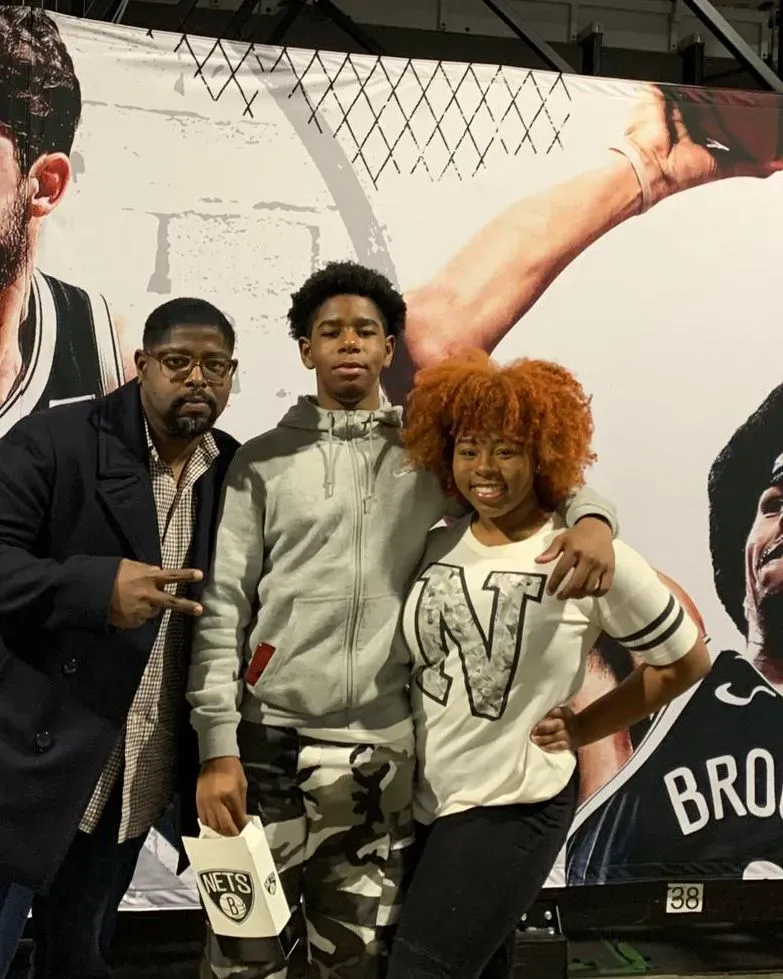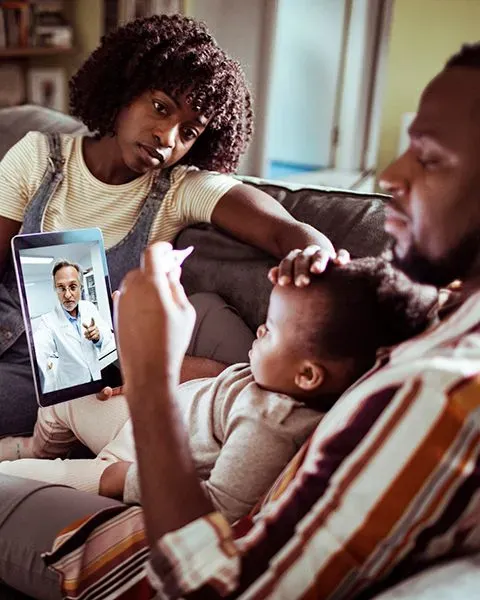
Job Transition
Dr. Terena Gimmillaro developed a heart for people struggling with addiction when she was working in the restaurant industry.
Before she became a doctor, she spent years working in restaurants, where she says the disease of addiction is prevalent. Watching friends, co-workers and patrons suffer through its cycles would leave a lasting impression and prove to be a powerful influence over her career choices.
Now, as an addiction medicine physician at Providence Portland Medical Center (PPMC), Dr. Gimmillaro says she can’t imagine working with any other patient population and is grateful to have found a position perfect for her so early in her medical career.
Her job is one of a kind at PPMC, a role created for her in a collaboration between Provider Solutions & Development (PS&D) and another physician working in the addiction medicine field. Together, the two doctors are pioneering a program that doesn’t exist at most hospitals.
Dr. Gimmillaro helps treat patients who are admitted for conditions like pneumonia but are also going through drug or alcohol withdrawals. She works with hospital physicians, nurses and staff to create a treatment plan that will address their illness as well as their withdrawal symptoms.
With a no-nonsense, yet approachable personality and easy smile, she’s known as “Dr. G,” and while she acknowledges that her work can be difficult, she finds it incredibly gratifying.
“People always ask me how I do this,” she says. “I do it because people get so much better. They come in and they’re in total despair. They’re so sick from their withdrawal, they’re mentally ill, they have all these issues with their families.
“You can get them stabilized and into a treatment program, and they turn their life around. They start taking care of their kids again; they repair their relationships. It’s amazing to watch and to get to be a part of that process. It’s a therapeutic alliance.”
"Some people get on the hamster wheel and grind it out. But if you want to do something unique or different, you can. You have to blaze the trail yourself and ask for help along the way. I wanted to do something different – I wanted something that made my career amazing, and I found it."
COVID-19 has underscored the importance of her work.
“A lot of people have unfortunately returned to using during this pandemic, because of stress, change of housing or financial concerns,” she says. “It makes me feel that much more committed to what I do, because the need is only increasing.”
Dr. G’s journey to becoming a physician began when she was in her early 30s, working long hours as a server. Burned out, she made a decision that would change the trajectory of her life. She would go back to school and become a nurse.
One of her first professors took her aside and encouraged her to aim higher. She took the advice and graduated from medical school eight years later.
Throughout her residency at Providence Milwaukie Hospital, she immersed herself in the world of addiction medicine, volunteering thousands of hours at Portland-area non-profit shelters, detox and rehabilitation centers like Central City Concern and Outside In, and launching Project Nurture – a program for women with pregnancies complicated by addiction. She also remained dedicated to her residency, where she was selected Chief Resident in her third year.
Toward the end of her residency, PS&D recruiters held a workshop at her hospital coaching residents in writing their curriculum vitae, honing interview skills and understanding compensation and benefit packages.
Dr. G formed a connection with PS&D Recruiter Robyn Pryor, who would help her get her first job, as a family medicine physician with Providence Medical Group, where she would work for two years.
But addiction medicine kept calling Dr. G’s name. A newer specialty, jobs where addiction medicine is a physician’s sole focus are hard to come by. Dr. G kept up her work at detox centers to keep her skills sharp.
Then an amazing opportunity opened up. A physician Dr. G had known for years got funding for a fulltime addiction medicine physician to join him in the Behavioral Health department at Providence Portland Medical Center.
“It was incredible! Here was my dream job, but we had to create it because it was something that hadn’t existed before,” Dr. G says. “That’s when Emma came into the picture.”
Robyn transitioned Dr. G to Emma Frires, PS&D’s Behavioral Health recruiter, who put her expertise to work, collaborating with Dr. G’s soon-to-be boss to create a customized position.
“Emma was amazing. She helped figure out all the details,” Dr. G says. “I’d say ‘what about this?’ And she’d come back with a solution. She just made it happen. There were very few barriers, and it was easy to get answers to all my questions.”
For Emma, creating the right fit for Dr. G was about getting to know who she is as a doctor and a person.
“Dr. Gimmillaro was re-evaluating whether primary care was really for her, but she was hanging in there,” Emma says. “She had reduced her time to .6 and was doing all this amazing outside work, at Northwest Recovery Works and at a methadone clinic. She was ready for something new and exciting.”
Location was important to Dr. G – she wanted to work on the east side of Portland, near her home, and she preferred .8 time.
“We talked a lot. I wanted to make sure I really understood what she was looking for,” Emma says. “I did all the behind-the-scenes work to get her what she needed and wanted. It was really rewarding to set Dr. G up in this position. It’s work she feels a real calling to do, and it’s such a huge need in the Portland area — as it is in big cities across the country. It was a real win-win.”
For Dr. G, every day brings new challenges and joys.
Detox centers and addiction specialists are incredibly rare at hospitals, and yet hospitals are heavily impacted by addiction. Studies show that around 20 percent of hospital admissions are drug or alcohol related, and emergency departments are hit the hardest. Most hospitals don’t have anyone specifically trained in addiction medicine who can help as patients begin going through withdrawals.
Addicted patients need their health problems addressed, but they also need help getting through detox, stabilizing on medication to prevent continued use, and assistance getting into intervention programs like counseling and other outpatient resources. One of Dr. G’s goals at PPMC is to ensure that residents and faculty are receiving addiction medicine training.
“It’s so important, because addiction is everywhere now, and we have to find a better way to deal with it,” she says. “The old way is to treat what people are admitted for, like a seizure, try to manage the withdrawal and discharge them with no plan. They keep drinking or using, they come back with symptoms, and we start all over; it’s a revolving door.
“At Providence, we are building awareness around the treatments and knowledge that are needed to actually address these disorders. I’m working on bringing in peer mentors and getting psychologists to round with me. We hope to hire another doctor to join me, and we’re talking about opening up an outpatient bridge clinic where people can go once they’re discharged, so we can follow up with them and take some of the pressure off our primary care clinics.”
Meanwhile, Dr. G works daily to make a difference with her work, which she says always starts with connection and establishing a rapport with her patients — an important first step because of the nature of the disease.
“It’s important that my patients come to know me and trust me, because an addicted person will typically make seven attempts at rehabilitation before it sticks,” she says. “I don’t care how many times I see someone, as long as they don’t die. The more attempts they make, the more likely they are to get clean and sober and completely change their lives.”
Now four years out of residency, Dr. G says she couldn’t be happier with where she has ended up – living in a city she loves, working at a progressive, pioneering hospital, doing work that fulfills a huge need in her community.
“Things have unfolded in an amazing way,” she says. “I couldn’t have imagined it going any better. What I’ve learned is that if you want to do something, people will help you. If you’re motivated, you can achieve your goals as long as you’re willing to step outside the box.
“Some people get on the hamster wheel and grind it out. But if you want to do something unique or different, you can. You have to blaze the trail yourself and ask for help along the way. I wanted to do something different – I wanted something that made my career amazing, and I found it.”

Job Transition

Telehealth